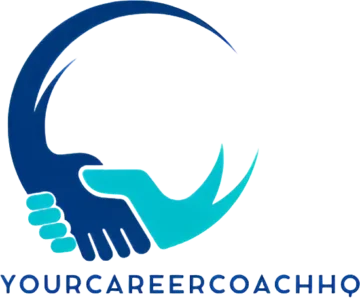Facing the question, “Why should we hire you?” in an interview can feel like a high-pressure moment. It’s a chance to sell yourself, but it can also be tricky to know what to say. This question digs into your qualifications and fit for the role, and it’s crucial to have a solid answer ready. In this article, we’ll break down the best ways to tackle this question and help you shine in your next interview.
Key Takeaways
- Understand what interviewers are really looking for when they ask this question.
- Highlight your unique skills and how they match the job requirements.
- Research the company to tailor your answer to their culture and needs.
- Use specific examples of your achievements to demonstrate your capabilities.
- Show your enthusiasm for the role and how you can contribute to the company’s success.
Understanding The Question Behind ‘Why Should We Hire You?’

What Are Interviewers Really Asking?
Okay, so you’re sitting there, and they hit you with the classic “Why should we hire you?” It feels like they’re asking you to sell your soul, right? But really, they’re trying to figure out a few key things. They want to know if you understand the job, if you’ve done your homework on the company, and most importantly, if you’re self-aware enough to know what you bring to the table. They’re not just looking for a list of skills; they want to see how you connect those skills to their needs. It’s like they’re saying, “Convince me you’re not just another resume.”

The Importance of Self-Promotion
Let’s be real: nobody likes a show-off. But this question? It’s basically a free pass to brag – within reason, of course. This is your moment to shine, to highlight what makes you, well, you. Think of it as a chance to market yourself. You’ve got to be your own hype person. Don’t be shy about your accomplishments. If you aced a project, say it! If you saved the company money, shout it from the rooftops (or, you know, just mention it calmly and confidently). It’s all about showing them why you’re not just good, but the best fit. Make sure you mention your achievements!
How This Question Reflects Your Fit
This question isn’t just about your skills; it’s about how well you’ll mesh with the company. Are you a team player? Do you thrive in a fast-paced environment? Are you passionate about what they do? They’re trying to gauge your cultural compatibility. It’s like they’re trying to figure out if you’ll be happy there, and if you’ll contribute positively to the overall vibe. It’s not just about what you can do, but how you’ll do it. It’s about showing them that you’re not just qualified, but that you’ll be a great addition to the team.
Think of this question as an invitation to connect your personal brand with the company’s needs. It’s your chance to show them that you’re not just looking for a job, but that you’re genuinely excited about the opportunity to contribute to their success.
Crafting Your Response Effectively
Start With Your Unique Selling Points
Okay, so you’re staring down the barrel of that dreaded question. Time to ditch the generic answers. Your unique selling points are what make you, you. Think about what you bring to the table that nobody else does. Is it a specific skill? A unique experience? Maybe it’s your uncanny ability to solve problems under pressure. Whatever it is, lead with it. Don’t bury the lede! Make sure to discover effective responses to make a lasting impression.
Align Your Skills With The Job
This isn’t about listing every skill you’ve ever acquired. It’s about showing how your skills directly address the needs of the role. Read the job description carefully. What are they really looking for? Then, connect your skills to those requirements. For example:
- If they need someone who’s detail-oriented, talk about a time you caught a critical error that saved a project.
- If they need a team player, describe how you’ve successfully collaborated with others to achieve a common goal.
- If they need someone with project management skills, talk about your experience with project management.
Use Specific Examples
Don’t just tell them you’re good at something; show them. Use the STAR method (Situation, Task, Action, Result) to structure your examples. This makes your accomplishments tangible and memorable. It’s way more impactful than just saying, “I’m a great leader.” Instead, say:
“In my previous role at Company X, we were facing a critical deadline for Project Y (Situation). My task was to motivate the team and ensure we delivered on time (Task). I implemented daily check-ins, delegated tasks based on individual strengths, and provided constant support (Action). As a result, we not only met the deadline but also exceeded expectations, increasing client satisfaction by 15% (Result).”
Researching The Company Before The Interview

Understanding Company Culture
Okay, so you’ve got the interview. Awesome! But before you even think about what you’re going to wear, you need to do some serious digging into the company’s culture. What’s it like to actually work there? Are they super formal, or more laid-back? Do they value teamwork, or is it more of an individual effort kind of place? Understanding the company culture will help you tailor your answers and show that you’d be a good fit. Check out their social media, employee reviews (Glassdoor is your friend!), and even news articles to get a feel for the vibe.
Identifying Key Values
Every company has a set of core values that guide their decisions and actions. These values are usually plastered all over their website, but don’t just read them – think about what they actually mean in practice. For example, if a company values “innovation,” how do they demonstrate that? Do they invest in research and development? Do they encourage employees to come up with new ideas? Knowing their key values will help you align your own values with theirs, and show them that you’re on the same page. You can research the company to find out more.
Tailoring Your Answer To Their Needs
This is where all your research pays off. You’re not just answering the question “Why should we hire you?” in a vacuum. You’re answering it in the context of this specific company and this specific role. Use what you’ve learned about their culture, values, and challenges to craft an answer that shows you understand their needs and how you can meet them. Don’t just say you’re a hard worker – explain how your work ethic will help them achieve their goals. Show them you’ve done your homework and you’re genuinely interested in contributing to their success.
Think of it like this: you’re not just selling yourself; you’re selling a solution to their problems. The more you know about their problems, the better you can position yourself as the answer.
Highlighting Relevant Skills And Experience
Okay, so you’re trying to figure out how to nail the ‘Why should we hire you?’ question, right? A big part of that is showing off what you’re good at. But it’s not just about listing skills; it’s about making them relevant.
Matching Your Background To The Role
Think of it like this: the job description is a wish list. Your goal is to show how your past lines up with what they’re looking for. Don’t just say you have the skills; prove it by connecting your background directly to the role’s requirements. For example, if they need someone with project management experience, talk about a time you successfully led a project, highlighting the tools and methods you used. It’s about making it obvious that you’re not just qualified, but perfectly suited.
Discussing Transferable Skills
Sometimes, your experience might not be a direct match, and that’s okay. That’s where transferable skills come in. These are skills you’ve gained in other roles or even outside of work that can still be useful in the new job. For instance, maybe you volunteered as a treasurer for a club. That shows you have experience with budgeting and financial management, which could be valuable even if you’re applying for a marketing position. The key is to explain how these skills translate.
Emphasizing Technical Proficiencies
If the job requires specific technical skills, don’t bury the lede. Bring those proficiencies front and center. List the software, tools, or systems you’re familiar with, and give examples of how you’ve used them successfully. If you’re applying for a data analyst role, mention your proficiency in SQL, Python, and data visualization tools. If you have certifications, definitely mention those too. It’s all about showing that you have the technical skills to hit the ground running.
Remember, it’s not enough to just list your skills. You need to show how those skills will benefit the company. Think about the challenges they’re facing and how your skills can help solve those problems. That’s what will really make you stand out.
Demonstrating Your Achievements
It’s not enough to just say you’re good; you need to show it. When answering the “Why should we hire you?” question, backing up your claims with concrete achievements is key. Think of it as providing evidence to support your case. Let’s break down how to do this effectively.
Quantifying Your Successes
Numbers speak volumes. Whenever possible, quantify your achievements. Instead of saying “I improved sales,” say “I increased sales by 15% in six months.” This gives the interviewer a clear, measurable understanding of your impact. If you managed a budget, state the size of the budget and how you optimized it. Did you reduce costs? By how much? Use hard data to make your accomplishments stand out. This is a great way to quantify your professional achievements.
Sharing Relevant Stories
Stories make your achievements memorable. Don’t just list accomplishments; tell the story behind them. What was the situation? What actions did you take? What was the result? Use the STAR method (Situation, Task, Action, Result) to structure your stories. This helps you present a clear and compelling narrative that showcases your skills and problem-solving abilities. For example:
“In my previous role, we were facing a major challenge with customer retention. (Situation) My task was to develop a strategy to improve customer loyalty. (Task) I implemented a personalized email campaign and a new customer feedback system. (Action) As a result, we saw a 20% increase in customer retention within the first quarter. (Result)”
Connecting Achievements To Company Goals
It’s important to show how your past successes align with the company’s current goals. Research the company’s mission, values, and recent initiatives. Then, tailor your examples to demonstrate how your skills and experience can contribute to their specific needs. If they’re focused on innovation, highlight achievements where you implemented new ideas or processes. If they value customer satisfaction, share stories where you went above and beyond to exceed customer expectations. By connecting your achievements to their goals, you show that you’re not just a capable candidate but also a valuable asset who can help them achieve their objectives.

Showcasing Your Passion And Motivation
It’s not just about what you can do, but why you want to do it, especially for this company. Letting your passion shine through can really set you apart. Companies want people who are genuinely excited about the work and the company’s mission. It makes a huge difference in attitude and productivity.
Expressing Enthusiasm For The Role
Don’t just say you’re excited; show it! Talk about what specifically interests you about the role. Is it the challenge? The opportunity to learn new things? The chance to use your skills in a new way? Enthusiasm is contagious, and interviewers are looking for candidates who are genuinely excited about the opportunity. A simple “I’m really excited about the opportunity to contribute to your team” isn’t enough. Dig deeper and explain why you’re excited.
Linking Personal Values To The Company
Does the company value sustainability, innovation, or community involvement? If those values align with your own, make sure to mention it. It shows you’ve done your research and that you’re not just looking for any job, but a place where you truly fit.
For example, if you’re interviewing at a company known for its environmental initiatives, you could mention your own commitment to sustainability and how you admire the company’s efforts in that area. This demonstrates that you’re not only qualified but also share their core values.
Discussing Long-Term Career Goals
Where do you see yourself in five years? Ten years? How does this role fit into your overall career trajectory? Companies want to invest in people who are looking to grow with them. It’s okay if you don’t have all the answers, but showing that you’ve thought about your future and how this role can help you get there is a big plus. It shows commitment and ambition. Here are some things to consider:
- What skills do you want to develop?
- What kind of impact do you want to make?
- How does this role align with your long-term vision?
Conveying Cultural Fit
It’s not just about skills and experience; it’s about how well you’ll mesh with the team and the company’s overall vibe. Interviewers want to know if you’ll thrive in their environment, so showing that you understand and appreciate their culture is key.
Understanding The Company’s Work Environment
Before you even walk into the interview room (or log onto the video call), do your homework. What’s the company’s work environment like? Is it collaborative, fast-paced, laid-back, or highly structured? Look for clues on their website, social media, and even employee reviews. Understanding the company’s work environment allows you to tailor your responses to show that you’d be a natural fit. For example, if they emphasize teamwork, prepare examples of successful collaborations.
Demonstrating Teamwork Skills
Even if the job description doesn’t explicitly mention “teamwork,” it’s almost always a plus. Share stories where you’ve effectively collaborated with others, resolved conflicts, or contributed to a team goal. Highlight your ability to listen, communicate, and support your colleagues. Don’t just say you’re a team player; prove it with specific examples. Think about times when you had to rely on others or when others relied on you.
Aligning Personal Values With the Company Mission
This is where your research really pays off. What does the company stand for? What are their core values? Do they prioritize innovation, customer service, or social responsibility? If you can genuinely connect your personal values to the company’s mission, you’ll demonstrate a deeper level of commitment and enthusiasm. It shows you’re not just looking for a job; you’re looking for a place where you can truly belong. For example, if a company values sustainability, you could talk about your efforts to reduce your carbon footprint or your passion for environmental conservation.
Explaining How You Can Contribute
Okay, so you’ve got the interview. Now it’s time to really nail why they should pick you. It’s not just about what you’ve done, but what you can do for them, right now, and in the future. Let’s break it down.
Identifying Company Challenges
Before you even walk into that room (or log onto that video call), you need to do some digging. What are the company’s pain points? What are they struggling with? Read their website, check out their social media, and see what’s being said about them in the news. Understanding their challenges is the first step to showing how you can help. It’s like diagnosing a problem before offering a solution. For example, if they’re a marketing company struggling with lead generation, that’s your cue to talk about your experience in boosting lead numbers.
Proposing Solutions Based On Your Skills
Alright, you know their problems. Now, connect the dots. How do your skills and experience directly address those issues? Don’t just say you’re good at something; show them how that skill translates into a tangible benefit for the company. Think of it like this: they’re looking for someone to build a bridge, and you’re showing them you’ve got the blueprints and the tools. If they need someone to streamline their customer service, talk about how you implemented a new ticketing system at your last job that reduced response times by 30%. That’s what they want to hear. Make sure to highlight your problem-solving skills.
Showing Initiative And Proactivity
It’s not enough to just say you can solve their problems; you need to show you’re eager to do it. Talk about ideas you have for improving things, even before you’re hired. This demonstrates initiative and shows you’re not just waiting to be told what to do. Maybe you noticed their website could use some SEO improvements, or their social media engagement is low. Suggest some specific strategies you could implement to address those issues. This shows you’re thinking ahead and you’re ready to hit the ground running. It also shows that you’ve done your research and are genuinely interested in the company’s goals.
Remember, it’s about showing them you’re not just looking for a job, you’re looking to make a real contribution. You want to be part of the solution, not just another cog in the machine.
Here’s a quick list of things to keep in mind:
- Research the company thoroughly.
- Identify their key challenges.
- Connect your skills to their needs.
- Show initiative and proactivity.
Being Honest And Authentic
It’s tempting to exaggerate or even fabricate things to make yourself look better during an interview. But trust me, it’s not worth it. Being genuine is way more important. Let’s break down why.
Avoiding Clichés And Generic Answers
We’ve all heard those canned responses before. “I’m a hard worker,” or “I’m a team player.” They’re not bad, but they don’t tell the interviewer anything specific about you. Instead of relying on clichés, focus on sharing real stories and examples that showcase your personality and skills. Think about what makes you, you, and let that shine through.
Staying True To Yourself
Don’t try to be someone you’re not. It’s exhausting, and it’s usually pretty obvious. The best way to answer “Why should we hire you?” is to be authentic. Greatest accomplishment should be something you are proud of. If you’re not passionate about something, don’t pretend to be. Interviewers can spot insincerity a mile away. It’s better to be honest about your strengths and weaknesses than to try to create a false image.
Building Trust With Your Response
Honesty builds trust. If you’re upfront about your skills and experience, the interviewer is more likely to believe what you say. This doesn’t mean you have to reveal every single flaw, but it does mean being truthful about your capabilities. If you don’t know something, admit it, and then explain how you’re willing to learn.
Being honest also sets the stage for a better working relationship if you get the job. You want to start off on the right foot, and that means being real from the beginning. It’s about finding a place where you can be yourself and contribute your best work.
Here are some things to keep in mind:
- Don’t exaggerate your skills.
- Be honest about your experience.
- Don’t pretend to be someone you’re not.
Practicing Your Answer

Okay, so you’ve crafted what you think is a killer answer to ‘Why should we hire you?’. Awesome! But don’t just leave it there. Practice is essential. You don’t want to sound robotic or like you’re reading from a script. Let’s break down how to make your delivery smooth and convincing.
Rehearsing With A Friend
Grab a friend, family member, or even a willing coworker and ask them to play the role of the interviewer. Seriously, this helps a ton! Have them ask you the question, and then deliver your answer. The key here is to get comfortable saying it out loud. Pay attention to your body language, too. Are you making eye contact? Do you seem confident? Your friend can give you honest feedback on your interview skills and help you refine your response. It’s way better to stumble a bit in front of someone you know than in the actual interview.
Using Mock Interviews
If you want to take things up a notch, consider doing a mock interview with a career counselor or someone who has experience in hiring. They can provide more professional feedback and ask follow-up questions that you might not anticipate. This is a great way to simulate the real interview environment and get used to thinking on your feet. Plus, it can help calm your nerves before the big day. Think of it as a dress rehearsal for your career!
Refining Your Delivery
After each practice session, take some time to reflect on how it went. What parts of your answer felt natural? What parts felt forced or awkward? Identify areas where you can improve your wording, tone, or body language. Record yourself – it can be painful to watch, but it’s super helpful. Are you speaking too fast? Are you using filler words like ‘um’ or ‘like’? The goal is to sound confident, enthusiastic, and genuine. Remember, you’re not just reciting words; you’re telling them why you’re the best person for the job.
Practicing your answer isn’t about memorizing a script. It’s about internalizing the key points and being able to articulate them in a natural and engaging way. The more you practice, the more confident and comfortable you’ll become, and the better you’ll be able to connect with the interviewer.
Learning From Sample Answers
Okay, so you’ve got the theory down. Now what? Let’s get real and look at some examples. Sometimes, seeing how others have tackled this question can spark ideas and help you shape your own winning response. It’s like peeking at someone else’s notes, but, you know, ethically.
Analyzing Industry-Specific Examples
Different jobs call for different answers, right? A software engineer isn’t going to give the same response as a marketing manager. That’s why it’s smart to check out examples tailored to your specific industry. Pay attention to the skills and experiences they highlight and how they relate to the job description. It’s all about making those connections.
Understanding Different Levels Of Experience
Are you a fresh-faced graduate or a seasoned pro? Your answer should reflect that. A recent grad might focus on their eagerness to learn and relevant coursework, while someone with years of experience will want to showcase their accomplishments and leadership skills.
Consider these points:
- Entry-level: Focus on potential and eagerness.
- Mid-level: Highlight achievements and relevant experience.
- Senior-level: Emphasize leadership and strategic contributions.
Adapting Sample Answers To Your Style
Don’t just copy and paste! That’s a recipe for disaster. Sample answers are there to inspire, not to be regurgitated. Take the core ideas and adapt them to your own voice and experiences. Think of it like remixing a song – you’re using the same basic elements, but creating something new and unique.
It’s important to remember that authenticity is key. If you try to be someone you’re not, it’ll come across as fake. Use sample answers as a guide, but always stay true to yourself.
Wrapping It Up
So, there you have it! Answering “Why should we hire you?” doesn’t have to be a nerve-wracking experience. Just remember to keep it real and focus on what makes you a great fit for the job. Highlight your skills, share your experiences, and show your enthusiasm for the role. It’s all about connecting the dots between what you bring to the table and what the company needs. With a little prep and practice, you’ll be ready to tackle this question like a pro. Good luck out there!
Frequently Asked Questions
What does the interviewer mean by asking ‘Why should we hire you?’
They want to know what makes you a good fit for the job and the company.
How do I start my answer to this question?
Begin by talking about your unique skills and what sets you apart from others.
Do I need to research the company before the interview?
Yes, understanding the company’s culture and values can help you tailor your answer.
Should I mention my past achievements?
Absolutely! Sharing specific successes can show your potential value to the company.
How can I express my passion for the job?
Talk about why you love the field and how it aligns with the company’s mission.
What if I don’t have much experience?
Focus on your transferable skills and any relevant projects or volunteer work.
Is it okay to be honest about my weaknesses?
Yes, but be sure to frame them positively and show how you’re working to improve.
How can I practice my answer?
Try rehearsing with a friend or use mock interviews to refine your response.




